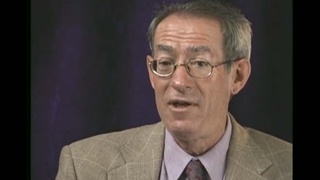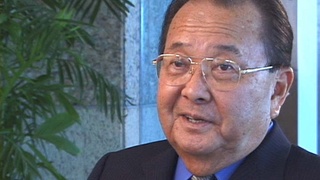Interviews
Stripped of Pride
In fact, the Sansei were the whole LTPRO. They came from the 1960s, 1970s, early 1970, during the Vietnam War. They, you know, they had organizations, grassroots organizations, that were anti-war and they were for the African American Civil Rights movement. And all of these Sansei who were going to the university and fighting for ethnic, because of the African Americans, they were coming around with "black power "and "black is beautiful" and the Asians, because we were in camp -- Japanese Americans especially -- we weren't necessarily aggressive. We were like somebody said, like rape victims, you know, you didn't want to talk about it, they were ashamed because they were in camp.
You can imagine walking through a column of MPs, how you gonna feel? You're gonna feel like a prisoner or somebody that's not a part of the society. And then you go into camp and you have these guard towers, guns pointing down, and, you know, fences all around you. I mean, it makes you feel like you don't want to be Japanese American, because everybody in camp looks like you.
So, you know, the whole psychology of the thing, it kind of broke down the Japanese American pride. And basically what it did was break up the, disperse the community to a point where you don't have a community, a united community. This was a hard part of redress struggle, to make them come out, to become pride, proud of themselves as Japanese Americans.
Date: September 13, 1997
Location: California, US
Interviewer: Larry Hashima
Contributed by: Denshō: The Japanese American Legacy Project.





